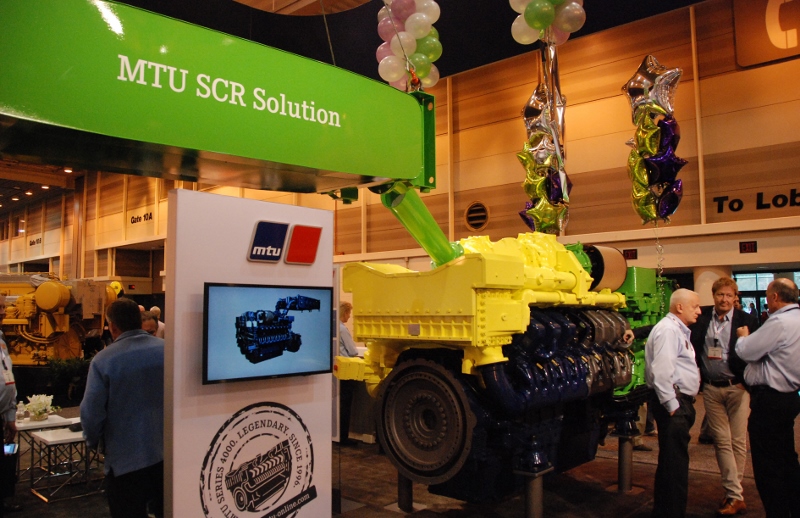As another brutal year of downsizing in the Gulf of Mexico offshore industry dragged toward its end, there was a glimmer of hope as the 2016 International WorkBoat Show opened last week.
Oil prices and futures popped nearly 9% on Nov. 30 on news that the Organization of Petroleum Exporting Countries might agree after all on production limits. Might this really be the end to low prices?
It may have contributed to the atmosphere on the show floor. Visitors and vendors said they were still waiting to see what 2017 and a new presidential administration will bring.
But life goes on, and equipment and boats eventually need to be replaced. Once businesses have seen the bottom, they are looking up to prepare for the future
The long-range investment questions around complying with ballast water regulations edged toward resolution Friday with the Coast Guard’s formal certification of the Optimarin AB ballasting filtration and ultraviolet treatment technology.
It is likely the Coast Guard will move forthrightly toward approving a couple more technologies, according to Birgir Nilsen, vice president of business development for Optimarin. That will enable fleet operators to make investment plans, helping reduce the problem of invasive species in U.S. waters and matching the IMO regime.
“The interest has increased dramatically because of the expectation” more system certifications are coming, Nilsen said.
Engine manufacturers and their experts were on hand to offer solutions to the industry’s next big environmental hurdle: meeting the EPA Tier 4 emissions requirements for marine engines. A graphic illustration from GE Transportation engineers neatly illustrated the steps EPA has demanded for winding down emissions.
After Tier 2 reductions of 38% nitrogen oxides, Tier 3 took another 20% out of NOx and 34% of particulate matter. Tier 4, aimed at higher horsepower and displacement engines, will take NOx down by 74% and particulates by 82%.
“Obviously when you have to go below 80% particulate matter, that’s a big jump,” said Ram Ottikkutti, executive manager for advanced technologies with GE Transportation. “That means more tradeoffs.”
Out on the show floor, there were jokes and real wishes the incoming Republicans in the White House and Congress will turn their “repeal and replace” rhetoric on Obamacare toward EPA air regulations.
But the fact is air quality rules have gotten tighter through decades of political rhetoric because the public supports them. Life goes on, and fleet operators, naval architects and shipbuilders need to fit Tier 4 into whatever future is out there.




